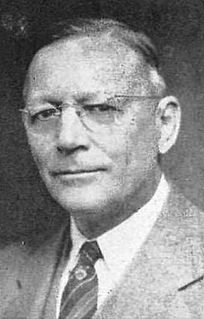A Quote by Ayn Rand
you are never called upon to prove a negative. that's a law of logic.
Related Quotes
The first fundamental law of the universe is the law of three forces, of three principles, or , as it is often called, the law of three. According to this law every action, every phenomenon in all worlds without exception, is the result of a simultaneous action of three forces- the positive, the negative, and the neutralizing.
When I was at Notre Dame studying under Joe Evans, Frank O'Malley, and others, there was a very lively debate about the distinction between natural law and revealed truth. Most of the philosophers of church and state expected that what was going to be advocated as the law of the land would be related to natural law. If you attempted to draw lines about certain general moral truths that were derivative of logic and reason, they would prove to be widely shared, and therefore suitable to be enacted into law on both the civic and religious sides.
Cleverly assorted scraps of spurious science are inculcated upon the children to prove necessity of law; obedience to the law is made a religion; moral goodness and the law of the masters are fused into one and the same divinity. The historical hero of the schoolroom is the man who obeys the law, and defends it against rebels.
God gave a law ... called justice. But they have made a law for themselves that is terrible and intricate, and they cannot escape it, for the evil will and the good will are caught alike in its meshes, and it is darkness to the eyes that see and a stumbling block to the feet that run. This law is called necessity.
The law of chastity is not a negative proposition, but a positive one because in its observance there are spiritual values that far outweigh the physical dangers that we often emphasize. I believe the chances are that our children will respond to the positive attitude quicker and more thoroughly than they do to the negative. Let's show them the values that there are in that law.





































